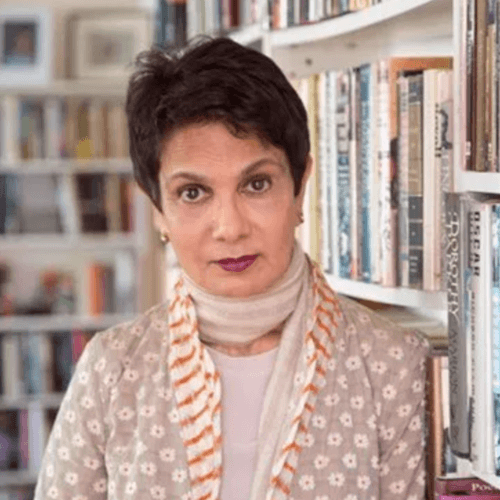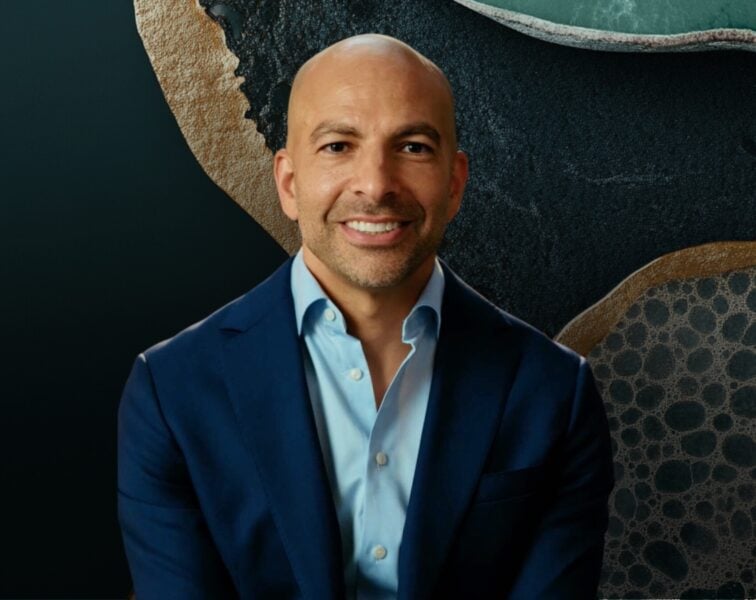Azra Raza is a physician, scientist, author, and outspoken advocate for reconfiguring the current model of research in cancer. In this episode, Azra discusses the content of her book, The First Cell, which takes a critical look at the outdated models being used to study cancer resulting in a lack of progress in survival rates for cancer patients. Azra offers a solution which focuses on early detection and prevention, and she concludes with an optimistic outlook for the future of cancer research.
Subscribe on: APPLE PODCASTS | RSS | GOOGLE | OVERCAST | STITCHER
We discuss:
- Azra’s upbringing, interest in oncology, and the basis for writing her book [3:30];
- The lack of progress in cancer treatment over the decades [18:45];
- What is holding the oncology field back? [33:15];
- Do the purported advances in oncology reflect the billions of dollars spent on cancer research? [40:00];
- Economics of new cancer drugs—how small increases in survival come with staggering financial burdens [47:00];
- How good intentions can still lead to misaligned incentives and a broken system [1:03:00];
- Why 95% of new cancer drugs fail—a critical review of the cancer research model [1:11:15];
- Early detection and prevention—a potential solution to the cancer problem [1:22:30];
- Coping with the loss of her husband to cancer [1:46:00];
- Azra’s optimistic view of the future [1:49:30]; and
- More.
Get Peter’s expertise in your inbox 100% free.
Sign up to receive An Introductory Guide to Longevity by Peter Attia, weekly longevity-focused articles, and new podcast announcements.
Azra’s upbringing, interest in oncology, and the basis for writing her book [3:30]
- Azra had no intention of ever writing a book
- In fact, she always explicitly said that she is NOT a writer
- However, she certainly had the credentials to write a book about cancer:
- First, she has spent 30 years studying oncology
- Secondly, she’s had a very active basic science laboratory throughout that time
- Third, she is a cancer widow—lost her husband to cancer in 2002
- But even that wasn’t enough to motivate her to write the book
- The final push to write the book happened when her daughter’s best friend, at age 22, developed a glioblastoma multiforme—one of the most malignant tumors known to mankind
“It slapped me in the face physically that, on the one hand, the ferociousness and violence of his tumor, and on the other hand, the utter helplessness of all of us, his oncologists, to do anything about it. Our complete failure in front of Andrew. How is it possible that we are so spectacularly failing a 22 year old boy? That’s what forced me to write the book.”
What drove Azra to oncology?
- Growing up in Pakistan, she was very interested in the nature world around her
- She like embryology
- She loved evolution and was a fan of Darwin’s work
- If it were an option for her in Pakistan, she claims she was have likely studied myrmecology—the scientific study of ants
A couple things happened to her that set her course into oncology:
1 | In his third year of medical school, she saw her first patient—
- That patient was a young woman with acute myeloid leukemia presenting with a very large spleen
- “I realized from that moment on that all of my life would be devoted to somehow use the best that science has to offer to reduce human suffering.”
2 | Witnessing the violent nature of cancer
- Karachi, Pakistan is very impoverished and when a person would get cancer they would travel long distances by donkey and on foot
- By the time they arrived for care, they would have end stage malignancies sprouting through breasts or huge lumps breaking out of people’s heads and arms
The combined factors of i) the violence of the disease, and ii) the intellectual challenge of understanding cancer pushed her into oncology
“It was the malevolence of the tumor, the violence of the disease, on the one hand. On the other hand, the intellectual challenge of trying to figure out how this whole thing began in a single cell and how that cell goes rogue, what journeys has it undertaken to reach this level of malignancy? It was the dual emotional as well as intellectual grip that basically caught me at a young age.”
The commonality of being moved by a med student’s “first patient”:
- Peter tells a similar story of how moved he was after seeing his first patient as a med student—someone with stage four colorectal cancer who Peter became very close with until he died 2 years later
- Steve Rosenberg’s first patient—
- The patient had metastatic gastric cancer to the liver, which should have killed the patient, but somehow his tumor was eradicated
- This led Steve to conclude the only way that was possible was if his immune system eradicated it — and Steve has since pioneered effective immunotherapies for cancer
- Azra says she is very mindful of this experience for first year med student
Azra quotes Emily Dickinson, “Tell all the truth but tell it slant. Success in circuit lies. Too bright for our infirm delight, the truth superb surprise. As lightning to the children eased, with explanation kind, the truth must dazzle gradually or every man be blind.”
The lack of progress in cancer treatment over the decades [18:45]
When Azra came into oncology, she says it was almost a “stigma” to have cancer
{end of show notes preview}
Would you like access to extensive show notes and references for this podcast (and more)?
Check out this post to see an example of what the substantial show notes look like. Become a member today to get access.

Azra Raza, M.D.
Dr. Azra Raza is the Chan Soon-Shiong Professor of Medicine and Director of the MDS Center at Columbia University in New York. She is the author of The First Cell: And the human costs of pursuing cancer’s last published by Basic Books, October 2019. She is considered an international authority on pre-leukemia (MDS) and acute leukemia and is one of those rare physician-scientists who divide their time equally between caring for patients and supervising a state-of-the-art basic research lab which is well-funded by multiple large grants. Dr. Raza started collecting blood and marrow samples on her patients in 1984 and now her Tissue Bank, the largest and oldest in the country with >60,000 samples, is considered a unique national treasure. She’s the recipient of numerous awards including The Hope Award in Cancer Research 2012 (shared with the Nobel Laureate Dr. Elizabeth Blackburn). [Full bio at azraraza.com]



